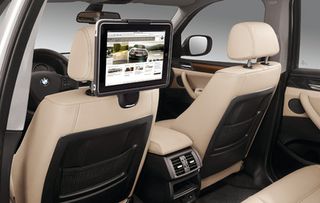
The rise of tablets has made computing easier, more friendly and fun, and cloud computing has made it more powerful. In effect, general purpose PCs are being supplanted by a new breed of devices that could be called 'information appliances' - and that's got people worried, because it means letting others control what we can do with our computers.
Take Windows 8 running on ARM devices, for example. On such systems Microsoft prohibits the disabling of secure booting, and any operating system loader must be signed by Microsoft; where x86 Windows 8 buyers can do whatever they want with their PCs, ARM purchasers will find themselves unable to run any OS bar Windows 8.
That's not a Microsoft-only strategy: iPads, BlackBerry PlayBooks and Galaxy Tabs are locked to prevent fiddling, and while Motorola and HTC don't prevent you unlocking their tablets, doing so voids the warranty.
Then there's app approval. On platforms like iOS or the Kindle Fire, your choice of apps depends on what Apple and Amazon have approved; while the Kindle Fire is technically an Android device, it's forked and uses Amazon's app store instead of the Android Market. Access to cloud-based media is subject to the whims of the service provider, and purchased content tends to have digital rights management (DRM) locking it to a specific platform.
Amazon has built a whole business on DRM: its Kindle ebooks work on Amazon hardware and in its apps, but not on rival e-readers. The trend is towards an ecosystem where the OS you use, the content you can access and the software you can install is decided by the hardware manufacturer and enforced by digital locks, and where the content you can access online is filtered and blocked in the name of preventing copyright infringement.
For many people that's a trade-off worth having - forcing every program through an approval process makes life difficult for malware, and blocking potentially dodgy websites can prevent your kids from downloading infected files - but for others it's part of a war on general purpose computing.
One of the biggest critics of the information appliance model is novelist and digital activist Cory Doctorow, who writes:
Get daily insight, inspiration and deals in your inbox
Get the hottest deals available in your inbox plus news, reviews, opinion, analysis and more from the TechRadar team.
"Today we have marketing departments that say things such as 'we don't need computers, we need appliances. Make me a computer that doesn't run every program, just a program that does this specialised task, like streaming audio, or routing packets, or playing Xbox games, and make sure it doesn't run programs I haven't authorised that might undermine our profits.'
Freedom in the future will require us to have the capacity to monitor our devices and set meaningful policies for them; to examine and terminate the software processes that runs on them; and to maintain them as honest servants to our will, not as traitors and spies working for criminals, thugs, and control freaks."
It's a terrifying prospect, but it's important to keep things in perspective. The vast majority of PCs sold aren't locked down and don't limit software to approved apps, and that will be the case for years to come. If Microsoft blocks access to unapproved Windows apps or Apple makes the OS X App Store the only way to distribute Mac software then we'll have a problem - and so will they, because any such move would cause uproar.
The future
So what does the future hold for the PC? Gartner's Angela McIntyre thinks it will be increasingly tablet-shaped.
"During the next five to 10 years, media tablets will instigate change in computing form factors," she writes. "Modular designs will enable tablets to take on new functions, becoming the cross-platform controller and brain for hybrid consumer electronics and computers.
Tablets will be substitutes for several of the consumer electronics consumers often carry with them. Thin-and-light mobile PCs with tablet-like features will become mainstream, pushing out some bulkier PC styles that have been the norm. Gartner has the Strategic Planning Assumption that in 2015, the biggest distinction between connected TVs, all-in-one desktops and tablets will be the screen size."
"When one looks across consumer electronics, mobile communication and PC industries, there is significant evidence of technology innovation aimed at delivering the ultimate personal consumer device - smartphone, tablet, PC, as well as embedded devices capable of operating seamlessly,"
Dave Rogers says. "Usage models, ergonomics and personal preference will play a very significant role in determining individual consumer choice." Perhaps the future of the PC is one where we have multiple bits of hardware connected to the same services and the same data, but all meeting specific needs.
"What seems to matter to consumers is that devices fit their needs, and that if multiple devices are needed, then they are happy to have multiple devices provided each does their job well," Rogers says.
Rather than one do-everything device, many of us will have multiple devices: an ultraportable notebook for work, perhaps, or an all-in-one family PC, a large tablet for the sofa, and a small one for the car. It's still a personal computer, but one that flits from device to device according to where you are, what you're doing and what happens to be handy.
That means we'll see a dizzying range of devices. Some PCs will have keyboards, others multi-touch, still others speech recognition, gesture control or eye tracking. Some will process locally and others will use the cloud; some will go everywhere you do, and others will stay in your living room.
The next generation of PCs mean that computing will become more personal than ever.
